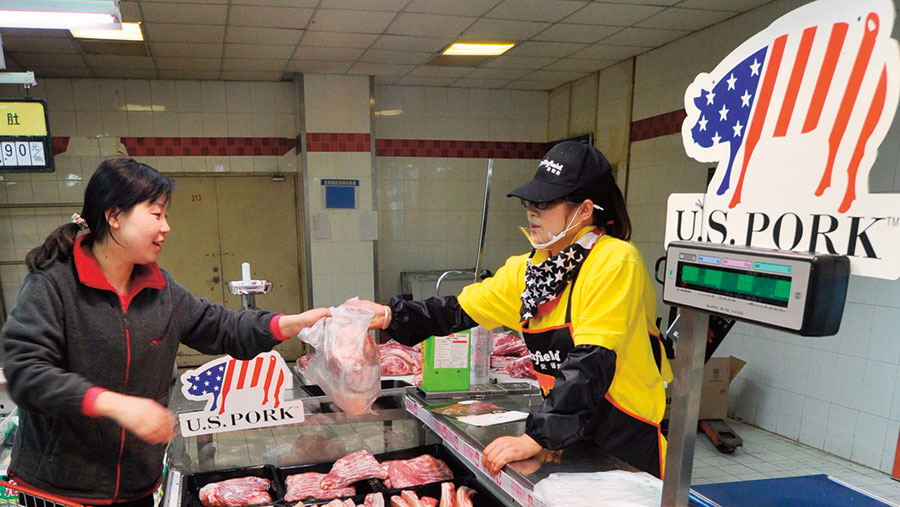US-China trade war could affect pork and feed
 © Imaginechina/REX/Shutterstock
© Imaginechina/REX/Shutterstock UK and EU pork exports could gain from the developing US-China trade war.
However, oilseed prices fell on the news earlier this week as China announced the imposition of import taxes or tariffs of up to 25% on more than 100 US products in retaliation for similar US action on 1,333 Chinese products.
The trade measures have alarmed many US farmers, with soya bean exports most vulnerable, alongside pork and many specialist products such as US-grown ginseng.
China imported £28.6bn worth of soya beans last year for cooking oil and animal feed, with almost £9bn of this sourced from the US.
The initial market reaction was a drop in soya bean prices on US futures markets, with the Paris oilseed rape futures following, losing up to £3/t midweek.
See also: Trading with China: Farmers Weekly visits Chengdu
About 7.5% of US pork exports go to China, representing about 1% of US pork production.
The UK has access to the Chinese market for certain fresh pork products and there was probably more of an upside for EU pork as a result of the trade measures, if China was looking to replace US pork imports, said AHDB lead analyst Duncan Wyatt.
The US pig herd grew by about 3% in the year to 1 March, according to the AHDB, to its largest size since 1988. Within this the breeding herd grew 2% to 6.2 million head and sow productivity is rising.
Prices pressure
However, US finished pig prices are under pressure, having fallen already by about 15% this year.
With the US being one of the EU’s main competitors on a global scale, the increase in production could affect the demand for EU pigmeat, the AHDB warned last month.
The China-US trade measures also illustrate the sensitivity of trade relations outside the single market, and highlight the potential vulnerability of trade once the UK leaves the EU.
